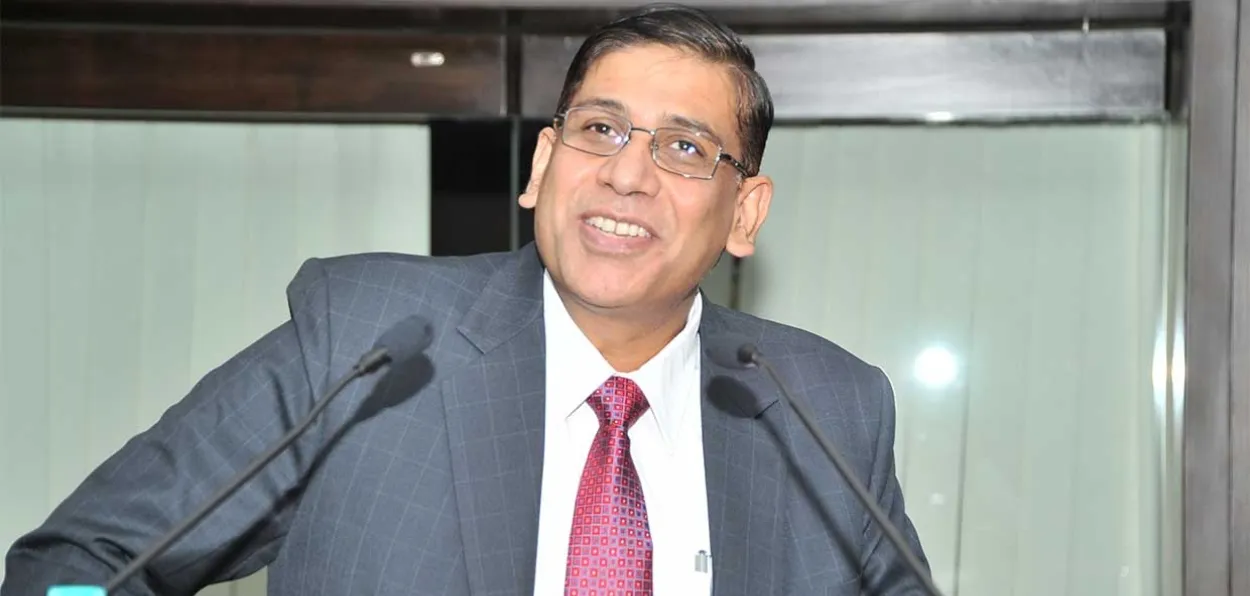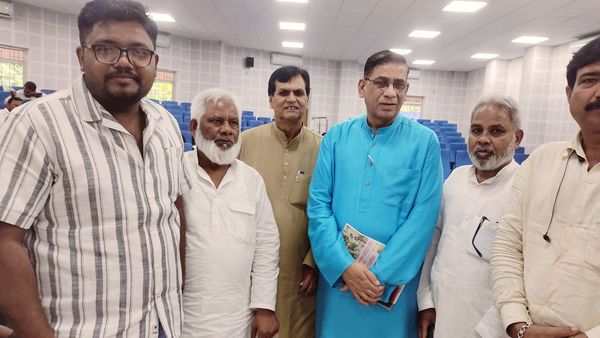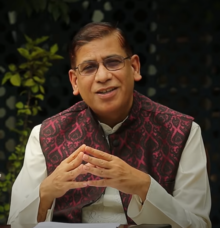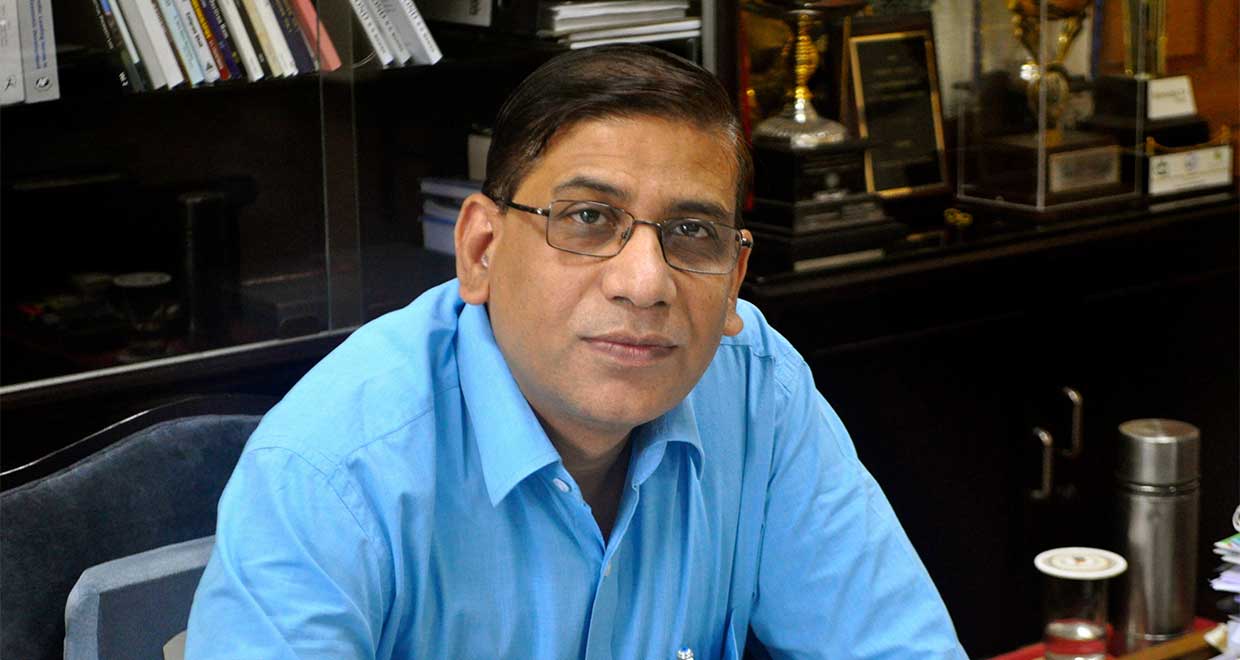
Rimsha/New Delhi
Despite starting his career without an LLM-level specialization or a Ph.D., Dr. Faizan Mustafa is today recognised as a prominent figure in Indian legal academia and a Constitutional expert. He was the only law professor on board, for the formulation of The Bharatiya Nyaya Sanhita (BNS), the Bharatiya Nagarik Suraksha Sanhita (BNSS), and the Bharatiya Sakshya Adhiniyam (BSA) that replaced the British-era penal provisions of the Indian criminal laws and came into force from July 1st, 2024.
Former Vice-Chancellor of the The National Academy of Legal Studies and Research (NALSAR), a national law university, today the Hyderabad-based Dr. Faizan manages a dynamic YouTube channel called Legal Awareness Web (LAW) Series that aims to simplify complex legal issues and raise law awareness. he is aformer
Dr. Mustafa's journey came full circle when he became the Dean of the Faculty of Law at Aligarh Muslim University (AMU), where he had once studied History and Law and further specialized in Criminal and Copyright Law as a student as part of his Bachelor, Masters, and Doctorate Degrees respectively.
As the Registrar of AMU, he introduced courses like IPR Law, Human Rights Law, and Tourism Laws.
 Dr. Faizan Mustafa attending a function in Patrna
Dr. Faizan Mustafa attending a function in Patrna
Having graduated in 1987, Dr. Mustafa is the recipient of both the Fullbright as well as the Commonwealth Scholarship and has earned his diploma in International and Comparative Human Rights Law from the International Institute of Human Rights, Strasbourg, France.
Born in Uttar Pradesh, Dr. Faizan reminisces about his early days at AMU under the mentorship of Professor Virendra Singh Rekhi, a luminary in constitutional law, and how his journey at Aligarh took unexpected turns and shaped his career. Though not initially intending to specialize in constitutional law, driven by the intrigue of Constitutional law’s originality and its profound impact on Indian society, Dr. Mustafa found himself drawn to its dynamic nature and its pivotal role in shaping legal discourse in India.
“The Constitution was ahead of its time in 1950 and still is in 2024. We have not fully appreciated its greatness back then or now, and are not fully prepared to understand and live by it,” Dr. Mustafa said. He highlights the stark contrast between India's progressive constitution and its practical implementation, and emphasizes the importance of instilling constitutional values in citizens.
Beyond his scholarly pursuits, Dr. Mustafa is a man of diverse interests and talents.
He finds joy in cooking Mughlai cuisine, viewing it not only as a culinary art but also as a means of relaxation and creativity. Interestingly, he reserves his culinary experiments exclusively for guests.
Dr. Mustafa loves Sufi music and classical Bollywood melodies. He reminisces fondly about his early days listening to the Kamil Irshad Show on All India Radio Urdu Service on his ancestral radio.
 Dr. Faizan Mustafa
Dr. Faizan Mustafa
In his teaching approach, Dr. Mustafa integrates popular culture into his lectures, using Hindi films such as 'Laapataa Ladies' and ‘P.K.’ to illustrate legal concepts and engage students effectively. He believes in the power of multimedia tools like films and documentaries to make complex legal principles relatable to his audience.
Dr. Mustafa advocates for a more liberal and participatory approach to university administration, emphasizing the importance of involving students in decision-making processes.
His tenure at various educational institutions has been marked by experiments with governance models that empower students and promote accountability, challenging traditional hierarchical structures.
On legal education in India, Dr. Mustafa challenges the common perception that only government institutions provide quality education. He acknowledges the excellence in private universities such as KIIT, O.P. Jindal University, and Symbiosis, highlighting their contributions to legal scholarship and teaching.
“Some government institutions do provide quality education while many do not. Similarly, some private institutions are better than the government institutions, but many are not,” he says.
However, he does address the absolute lack of power held by Vice-Chancellors in private universities, leading to biased governance dominated by sponsors and stakeholders.
Technology, according to Dr. Mustafa, has revolutionized legal research and pedagogy, making resources like Supreme Court judgments and academic databases readily accessible. He underscores the importance of leveraging digital tools to enhance transparency and efficiency within the legal system, a perspective shaped by his experiences as a researcher and educator.
 Dr. Faizan Mustafa
Dr. Faizan Mustafa
Dr. Mustafa's impact extends beyond the classroom. His arguments have influenced significant court judgments, including cases involving fundamental rights and religious practices. He takes pride in his contributions to legislative processes, having been consulted by lawmakers on critical criminal law reforms.
Dr. Mustafa claims to have never participated in a protest, for he prides himself in being an academician and not an activist. However, he holds the protests in goodwill as they promote the exercise of freedom of speech and expression.
Central to Dr Mustafa's philosophy is the imperative to promote constitutional patriotism among Indians. He believes that a deeper understanding and appreciation of the Constitution are essential for building a cohesive and democratic society. He critiques the failure of the Congress Government in not doing enough to foster constitutional values, although providing the country with an enlightened, liberal, and democratic constitution; noting that divisive rhetoric and challenges to fundamental rights persist due to this shortfall.
For aspiring students of constitutional law, Dr. Mustafa recommends foundational texts like NCERT's 12th-grade book on the Indian Constitution, followed by comprehensive works by scholars such as HM Seervai and M.P. Jain.
ALAO READ: Young Scientist Muneer Khan runs online portal for underprivileged innovators of India
He encourages young scholars to explore interdisciplinary perspectives, advocating for a holistic understanding incorporating history, sociology, and economics.
